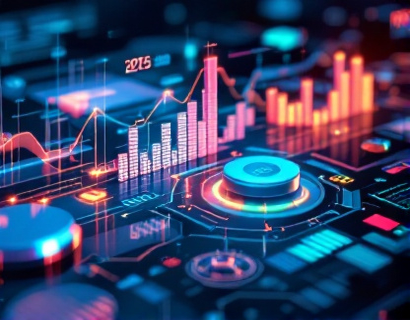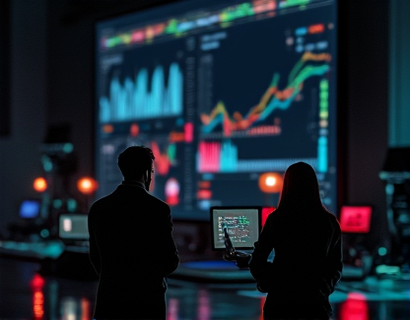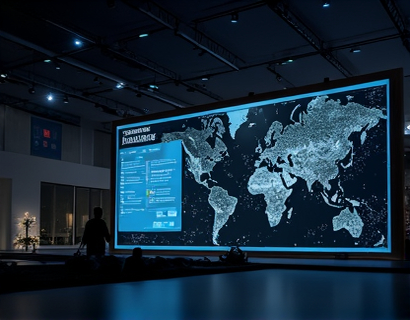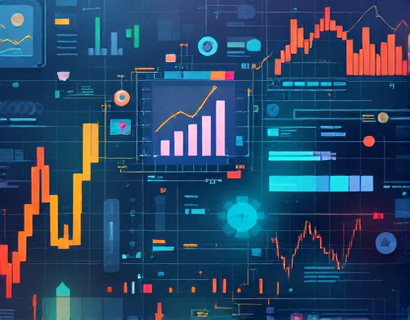Unlocking Economic Dynamics: In-Depth Whitepapers and Business Insights for Navigating Modern Market Complexities
In the rapidly evolving landscape of global economics, understanding the intricate dynamics that drive market behaviors is crucial for both enthusiasts and professionals. This article delves into the depths of modern economic theories and market complexities, offering comprehensive insights through detailed whitepapers and expert analyses. Designed for economic enthusiasts and business professionals, the content aims to empower readers with the knowledge necessary to navigate and leverage these complexities effectively.
Understanding Modern Economic Dynamics
The modern economic landscape is characterized by a multitude of interconnected factors, including technological advancements, geopolitical tensions, environmental concerns, and shifts in consumer behavior. These elements create a dynamic and often unpredictable environment where traditional economic models may fall short. To effectively navigate this landscape, it is essential to grasp the underlying principles and emerging trends that shape economic outcomes.
One of the key aspects of modern economic dynamics is the role of technology. The digital revolution has transformed industries across the board, from finance and healthcare to manufacturing and retail. Technologies such as artificial intelligence, blockchain, and the Internet of Things (IoT) are not only enhancing efficiency and productivity but also creating new market opportunities and challenges. For instance, the rise of e-commerce has disrupted traditional retail models, forcing businesses to adapt to online platforms and digital marketing strategies.
Technological Innovations and Market Transformation
Artificial intelligence (AI) is a prime example of a technology reshaping economic dynamics. AI-driven analytics and automation are revolutionizing how businesses operate, from supply chain management to customer service. Companies that leverage AI can gain a competitive edge by optimizing processes, reducing costs, and enhancing customer experiences. However, the adoption of AI also raises important questions about job displacement and the need for reskilling the workforce.
Blockchain technology, known primarily for its role in cryptocurrencies, offers broader applications in ensuring transparency and security in transactions. In industries such as finance and supply chain management, blockchain can reduce fraud, streamline processes, and build trust among stakeholders. The potential for decentralized systems to disrupt traditional centralized models is significant, and understanding these dynamics is crucial for businesses looking to innovate and stay ahead.
Geopolitical Factors and Economic Stability
Geopolitical tensions and international relations play a pivotal role in shaping economic outcomes. Trade policies, diplomatic relations, and conflicts can have far-reaching impacts on global markets. For example, trade wars and tariffs can disrupt supply chains, increase costs, and affect consumer prices. Understanding the geopolitical landscape and its economic implications is essential for businesses operating in a global market.
Moreover, the rise of emerging economies and the shifting balance of power among nations are reshaping the economic order. Countries like China and India are becoming increasingly influential in global trade and investment, challenging the traditional dominance of Western economies. Businesses must stay informed about these shifts to identify new opportunities and mitigate risks associated with changing geopolitical dynamics.
Environmental Considerations and Sustainable Economics
Environmental factors are gaining prominence in economic discussions, as the impact of climate change and resource depletion becomes more evident. Sustainable economics focuses on balancing economic growth with environmental stewardship, promoting practices that minimize ecological footprints and ensure long-term viability. Companies that integrate sustainability into their core strategies can not only reduce risks but also tap into a growing market of environmentally conscious consumers.
Regulatory frameworks are evolving to support sustainable practices, with governments implementing policies to reduce carbon emissions and promote renewable energy. Businesses that proactively adopt sustainable practices can benefit from incentives and avoid penalties, positioning themselves as leaders in the transition to a greener economy. Understanding the intersection of economics and environmental policy is crucial for making informed decisions in a rapidly changing world.
Consumer Behavior and Market Trends
Consumer behavior is a critical driver of market dynamics, influenced by a variety of factors including demographic changes, cultural shifts, and technological advancements. The rise of the gig economy and the increasing preference for experiential consumption are just two trends that businesses must consider. Understanding these shifts allows companies to tailor their products and services to meet evolving consumer needs and expectations.
Data analytics plays a vital role in gauging consumer behavior, providing insights that can inform marketing strategies and product development. By leveraging big data and advanced analytics, businesses can gain a deeper understanding of customer preferences, predict market trends, and optimize their offerings. This data-driven approach is essential for staying competitive in a market where consumer demands are constantly evolving.
Economic Theories and Practical Applications
Economic theories provide a framework for understanding and predicting market behaviors, but applying these theories in real-world scenarios requires a nuanced approach. For instance, Keynesian economics emphasizes the role of government intervention in managing economic cycles, while supply-side economics focuses on reducing barriers to production and investment. Each theory offers valuable insights, but their effectiveness can vary depending on the specific economic context.
Understanding the strengths and limitations of different economic theories enables businesses to make informed decisions. For example, during periods of economic downturn, Keynesian policies may be more effective in stimulating demand, while in times of high inflation, supply-side measures might be more appropriate. By combining theoretical knowledge with practical insights, businesses can develop strategies that are both principled and adaptable.
Navigating Market Complexities: Strategies for Success
In a complex and dynamic economic environment, success requires a multifaceted approach. Here are some key strategies for businesses to navigate these complexities effectively:
- Embrace Innovation: Stay ahead by adopting new technologies and innovative practices. Invest in research and development to create unique value propositions.
- Build Resilience: Develop flexible business models that can adapt to changing market conditions. Diversify operations and supply chains to mitigate risks.
- Focus on Sustainability: Integrate environmental and social governance (ESG) principles into business strategies. This not only addresses regulatory requirements but also appeals to a growing base of conscious consumers.
- Leverage Data: Utilize data analytics to gain insights into consumer behavior and market trends. Make data-driven decisions to optimize operations and enhance customer experiences.
- Understand Geopolitics: Stay informed about international relations and trade policies. Develop strategies that account for geopolitical risks and opportunities.
- Prioritize Customer Experience: In a competitive market, exceptional customer service and personalized experiences can differentiate a business. Invest in customer relationship management and feedback mechanisms.
By implementing these strategies, businesses can better navigate the complexities of modern economic dynamics and position themselves for long-term success.
Conclusion
Unlocking the intricacies of modern economic dynamics requires a deep understanding of the interplay between technology, geopolitics, environmental factors, and consumer behavior. Through in-depth whitepapers and expert insights, businesses can gain the knowledge and tools necessary to navigate and leverage these complexities effectively. By embracing innovation, building resilience, focusing on sustainability, leveraging data, understanding geopolitics, and prioritizing customer experience, businesses can thrive in an ever-changing economic landscape.










































